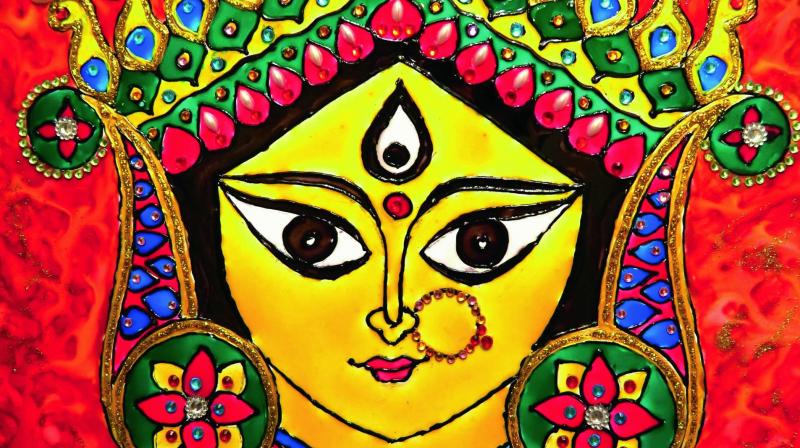Essence of Navratras
The beginning of summer and the beginning of winter have been chosen for the worship of the divine power.

Signifying triumph of positivity over negativity, Navratri literally means ‘nine nights’ in Sanskrit; nav — nine and ratri — nights. Observed over a period of nine nights, the festival is famous throughout the country for its religious and social importance. It is devoted to the worship of the divine Mother in various forms. Like any other Hindu festival, Navratri has a divine message for its observers.
This nine-day festival rejoices the triumph of good over evil and urges mankind to wake up from the slumber of ignorance, remove all negativity, cleanse the mind and nurture positive values. This alone can help one gain the necessary spiritual knowledge to raise above all earthly limitations and achieve salvation — the highest goal of human life.
During Navratri this is done through fasting, meditation and knowledge, worship, satsang and silence, because all of these purify different aspects of our being. Fasting detoxifies the body, silence refines speech and calms the mind, knowledge purifies the intellect, and meditation allows us to experience our true nature.
Navratri has a deep significance behind its celebration. It is not only celebrated for fun and enjoyment. Every year the beginning of summer and the beginning of winter are two very important junctures of climatic change and solar influence. These two junctures have been chosen as the sacred opportunities for the worship of the divine power.
It is the divine power that provides energy for the earth to move around the sun, causing changes in nature; hence we thank this divine power during Navaratri for maintaining stability in the universe.
Due to changes in climate and nature, the bodies and minds of people undergo a substantial change. Hence, we worship the divine power to bestow enough potent powers upon all of us to conserve our physical and mental balance.
During Navaratri, one invokes the energy of God in the form of the universal Mother, commonly referred to as Durga, which literally means the remover of griefs of life. She is also referred to as ‘Devi’ or ‘Shakti’. It is this energy which helps God to proceed with the work of creation, protection and destruction. In other words, you can say that the divine Mother Durga does everything. Honestly, our worship of Shakti confirms the theory that energy is everlasting. It cannot be created or devastated. It is always present in the universe.
Navratri is divided into sets of three days to worship different aspects of the supreme Goddess. On the first three days, the Mother is invoked as a dominant force called Durga in order to destroy all our impurities, evils and defects. The next three days, Devi is adored as a giver of divine wealth, Lakshmi, who is considered to have the power of bestowing on her devotees the everlasting wealth. The final set of three days are spent in worshipping the Mother as the goddess of wisdom, Saraswati. In order to triumph and achieve all round success in life, we need the blessings of all three aspects of the divine mother; hence, we worship the goddess for nine nights.
The tenth day, Vijaya Dasami or Dasara, marks the glorious ovation of the soul at having attained deliverance while living in this world, through the descent of knowledge by the grace of goddess Saraswati. The soul rests in its own supreme self. This day celebrates the victory and accomplishment of the supreme goal. The banner of victory adorns the sky on this day. So when you honour and worship the Devi, when you dive deep within the self during these nine nights, you arise triumphant over all these negative aspects. It is also very beautiful to see how one is skillfully taken beyond passion and aversion, by seeing the divine in all aspects of creation.
The writer is an astrologer and vastu expert

